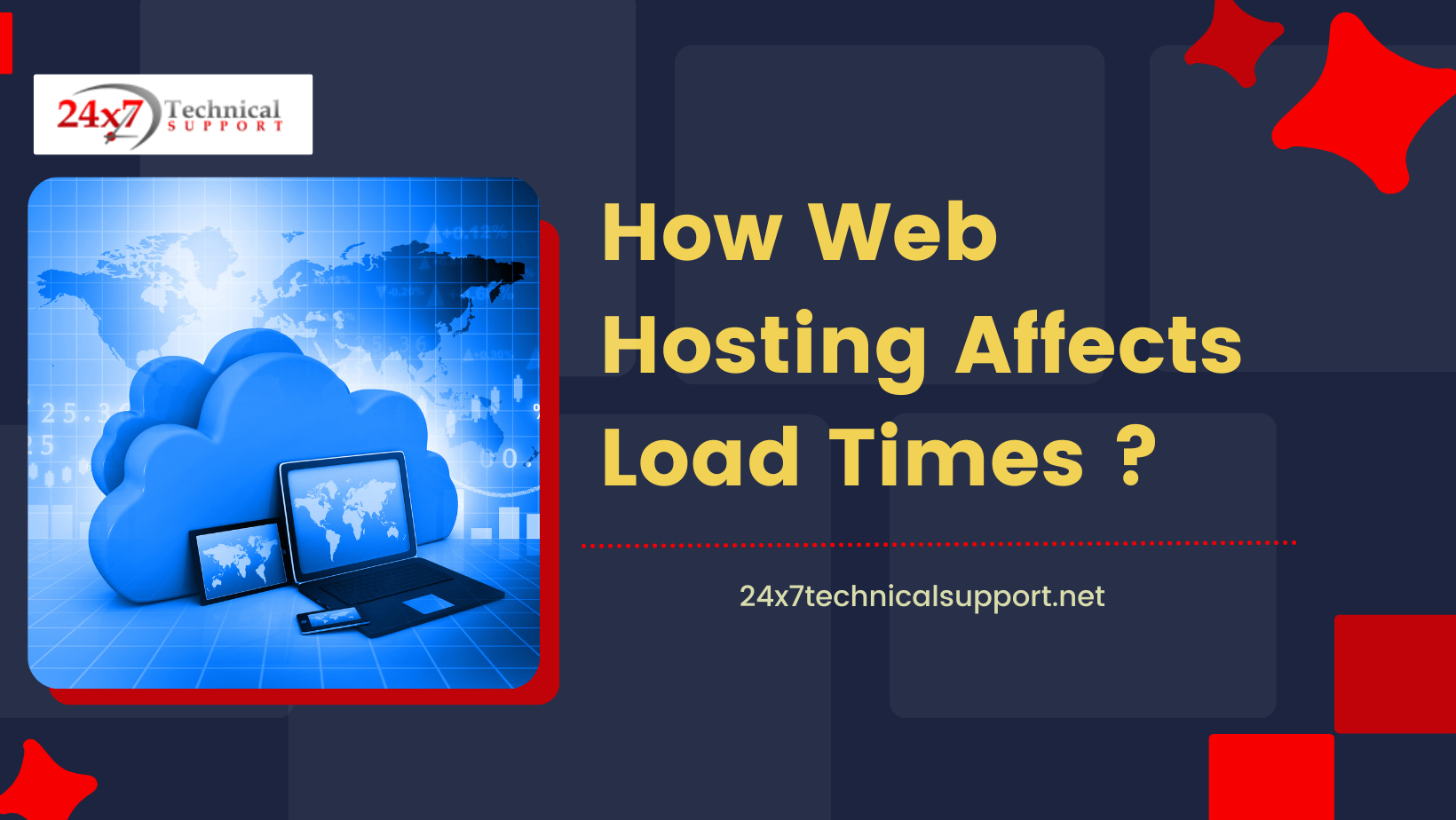
Introduction:
In today’s fast-paced digital world, a website’s speed plays a crucial role in determining its success. As online users demand quick and seamless browsing experiences, website owners must recognize the significance of optimizing their site’s loading times. While many factors contribute to website speed, one of the most influential is the choice of web hosting. In this blog, we will explore how web hosting affects load times and why it is essential to select the right hosting provider to ensure optimal website performance.

Server Response Time and TTFB (Time to First Byte):
When a user accesses a website, their browser sends a request to the hosting server, and the server responds by sending the necessary files to display the webpage. The time taken by the server to respond to this initial request is known as the Time to First Byte (TTFB). Web hosting providers with powerful servers and optimized configurations can significantly reduce TTFB, resulting in faster load times for visitors.

Website Traffic and Resource Allocation:
The amount of website traffic a server handles at any given time can impact load times. In shared hosting, multiple websites share resources on the same server. If one site experiences a surge in traffic, it can slow down the entire server, affecting other websites hosted on it. Upgrading to a Virtual Private Server (VPS) or dedicated hosting can provide dedicated resources, ensuring consistent performance even during traffic spikes.
Server Location and Latency:
The physical location of the web hosting server plays a vital role in determining latency—the time taken for data to travel from the server to the user’s browser. Choosing a hosting provider with data centers located closer to your target audience can reduce latency and result in faster load times for users in that region.

Content Delivery Networks (CDNs):
CDNs are networks of servers distributed across various geographic locations. They store cached versions of your website’s static content, such as images, CSS, and JavaScript files. When a user accesses your site, the CDN serves these files from the server closest to their location, reducing data travel time and improving load times globally.
Hardware and Technology:
The quality of the hosting provider’s hardware and technology infrastructure directly impacts website speed. Modern servers with solid-state drives (SSDs) offer faster data retrieval than traditional hard disk drives (HDDs). Additionally, advanced caching mechanisms and optimized software configurations can further enhance website performance.

Website Optimization:
Some web hosting providers offer performance optimization tools and features to improve website speed. These may include server-side caching, GZIP compression, and image optimization. Utilizing such tools can lead to significant load time reductions.
Conclusion:
In the digital landscape, where every second counts, website speed is more critical than ever. The choice of web hosting provider has a substantial impact on load times and overall website performance.